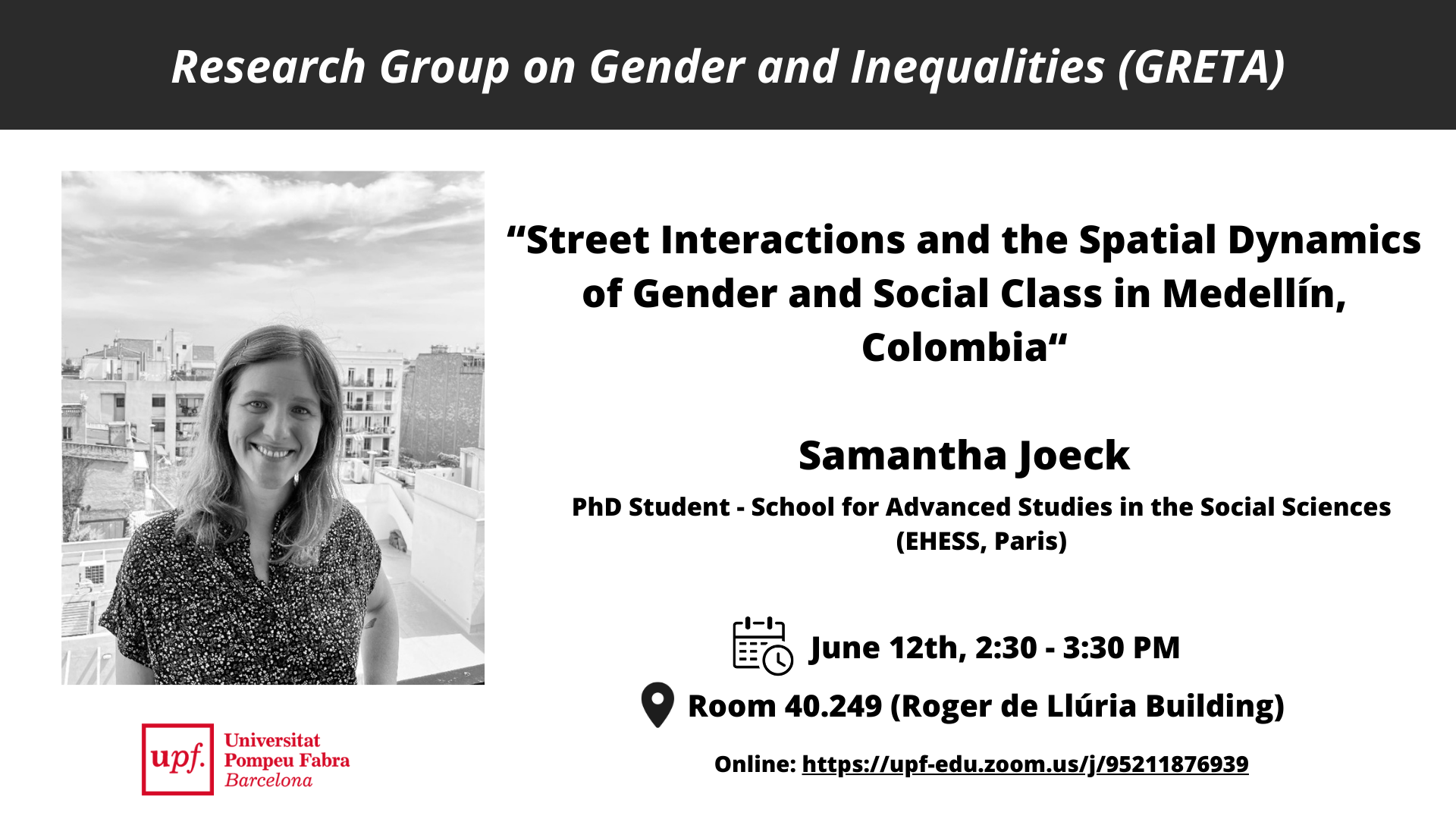Seminar "Street Interactions and the Spatial Dynamics of Gender and Social Class in Medellín, Colombia"
Seminar "Street Interactions and the Spatial Dynamics of Gender and Social Class in Medellín, Colombia"

In two weeks, we will host our last seminar of the 2023-2024 course. On this occasion, we will hear from Samantha Joeck, a PhD candidate in anthropology at the EHESS (School for Advanced Studies in the Social Sciences) in Paris. She has been a visiting researcher with Greta. She has a master’s degree in sociology and gender studies from the EHESS and a bachelor’s degree in anthropology from NYU. Her research interests include social interactions, public space, transnational feminism, and urban anthropology.
The presentation will take place on June 12th, 2:30-3:30 pm, in Room 40.249 (Roger de Llúria building). If you can´t attend in person you can join us online: https://upf-edu.zoom.us/j/
Abstract: This research explores how the structure of urban spaces is shaped by the gendered interactions that take place in them. Focusing on Medellín, Colombia, I adopt an intersectional approach to study the way a range of gendered street interactions (such as harassment, greetings, soliciting, flirtation, gallantry) are embedded in different power relations, and how they affect the experience of urban public space. Based on seven months of ethnographic fieldwork that included social cartography and walking interviews, the project follows two principal lines of inquiry. The first concerns the relationship between urban socio-spatial segregation and the use and perceptions of gendered interactions. It involves an analysis of how the experience of these interactions is influenced by spatial and relational markers related to distance, symmetry, and familiarity that operate at various spatial scales of the interaction, and that are perceived differently in function of the participants’ habitual spatial environment, which in Medellín is synonymous with social class. The second looks at the ways in which both legal and illegal forces of order (Medellín’s municipal government and local paramilitary successor groups, respectively), alternately condemn or engage in the harassment of women in public spaces as a means to consolidate control over territories and uphold particular economic and social orders. The results of this research reveal how a continuum of gendered street interactions enforce dichotomous gender roles that are deeply entwined with social class. They also point to an understanding of gender and social class as joint products of interactional dynamics and spatial infrastructures that condition and shape one another

